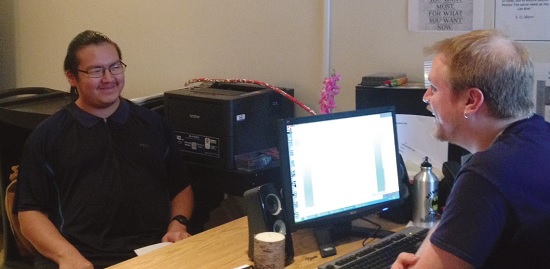 “The Booth Centre gave me a place to stay,” says Danny Day (Photo: Caroline Franks)
“The Booth Centre gave me a place to stay,” says Danny Day (Photo: Caroline Franks)
Food and Shelter
“If you put your mind to it, you can accomplish anything,” says 20-year-old Danny Day.
He moved to Ottawa from the Sandy Lake First Nation reserve in northern Ontario in 2014, leaving behind his community and family, in search of a job and new opportunities.
“I love Ottawa but it was a huge culture shock,” he says. “There are a lot of people.”
After spending his first year at another shelter, Danny's been living at The Salvation Army's Booth Centre since this past summer while going to school.
“The Booth Centre gave me a place to stay, so I didn't have to worry while I was studying,” he says. “That's what I needed: food and shelter.”
While there, Danny enrolled in the residential life-skills program, which helped him learn to keep a routine and a schedule.
“They teach you how to plan goals and learn basic life skills such as cooking,” he says. “They also taught me how to look for an apartment and manage my money. I learned so much while I was there.”
Danny has now graduated from the culinary training program through Aboriginal Experiences.
“I want to work as a food and beverage server in a high-end restaurant or hotel,” he says.
“We are trying to help him find full-time work,” states Drew Corley, the residential life-skills co-ordinator. “He's an incredibly hard-working and positive-thinking young man.”
Back on Track
“I lived with my elderly mother and helped take care of her until she passed away,” says Thomas Linden.
The 58-year-old lost the home he shared with his mother because he could not afford the mortgage payments.
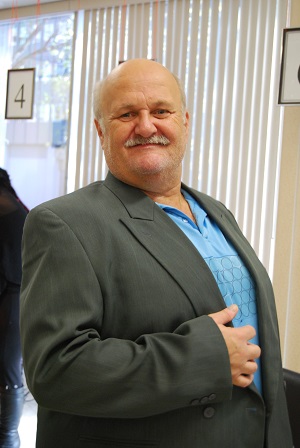 “The staff here is fantastic!” says Thomas Linden of the Booth Centre (Photo: Caroline Franks)
“The staff here is fantastic!” says Thomas Linden of the Booth Centre (Photo: Caroline Franks)
“My mom was the money provider,” Thomas explains. “She had the mortgage maxed out and she kept remortgaging, so suddenly I owed more than the home was worth and the bank eventually took the house back.”
Homeless now for about a year, Thomas has been at the Booth Centre since last fall. The Salvation Army is helping Thomas look for affordable housing and he has recently joined the residential life-skills program.
“I have learned things such as taking responsibility and making good decisions. And while I know what I'm doing around the kitchen, I did learn a few new recipes in the cooking class,” says Thomas.
“The Salvation Army is a great organization if you need them and a great organization to help if you don't,” he continues. “If you have to come here they will welcome you with open arms and try to help you repair what's wrong and get you back on track.”
“I Can Do Anything”
“When I hit rock bottom, I felt like my world had come to an end,” says 25-year-old Johnathan Bannan. But it was the care and concern of the staff at The Salvation Army that made him realize he wasn't alone.
“I spent time in prison. After I got out, my only option was to seek shelter with the Army. No other shelter would take me in.”
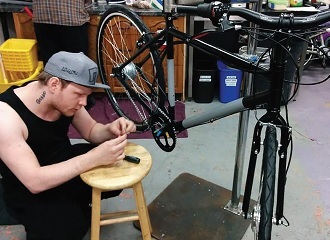 “I spent time in prison. No other shelter would take me in,” says Johnathan Bannan (Photo: Courtesy of Johnathan Bannan)
“I spent time in prison. No other shelter would take me in,” says Johnathan Bannan (Photo: Courtesy of Johnathan Bannan)
Johnathan participated in a drug-treatment program before entering the residential life-skills program at the Booth Centre.
The program requires each participant to complete 16 practical skills and more than 48 life-skills classes, which include conversation skills, forgiveness and anger management,.
“The Army put me on the right track and gave me the tools and support I needed,” says Johnathan. “They taught me that 'a positive attitude leads to positive outcomes.' It was life-changing because ever since I started being more positive, everything is working out.”
Staff connected Johnathan to the Causeway Work Centre, a non-profit organization that helps people overcome employment barriers such as mental illness, homelessness and poverty. Through Causeway, Johnathan learned about a training program at Right Bike to become a bicycle technician.
“It's pretty awesome. I've finally found my passion.”
Johnathan is about to graduate and will soon begin a work placement at a bike shop in Ottawa.
“If you have the right support and you use the tools that are given to you, you can do anything.”





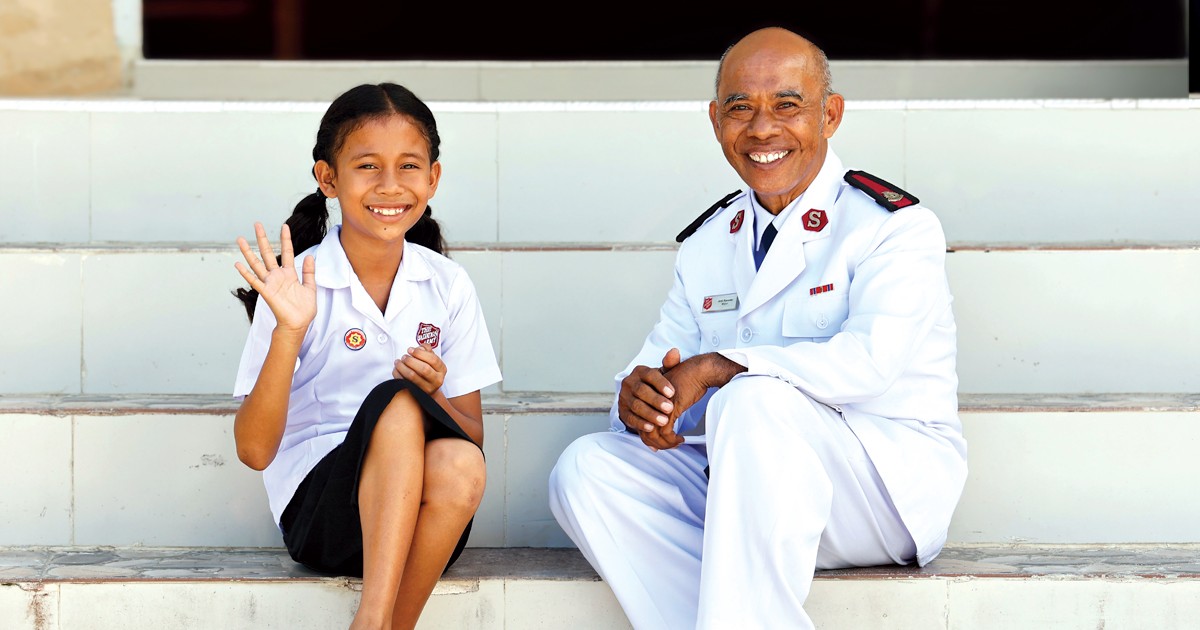
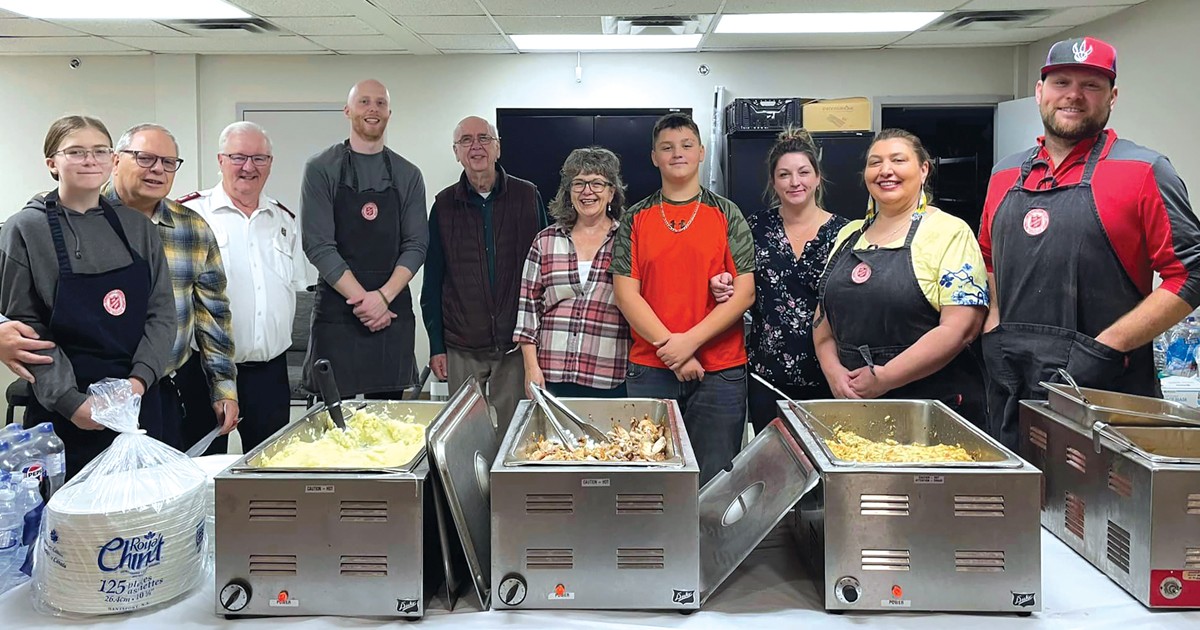



Leave a Comment